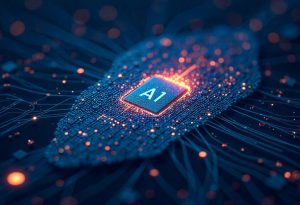Gavroshe CEO Says the Next Frontier in Big Data is Already Here #MITIQ
![]() In their ongoing coverage of MIT Information Quality Conference, Dave Vellante and Paul Gillen speak with Mark Johnson, CEO of Gavroshe. The three discuss the increasing relevance and constraints of data analysis, why the next frontier in big data is already upon us and how the advancement of big data all comes down to human capital.
In their ongoing coverage of MIT Information Quality Conference, Dave Vellante and Paul Gillen speak with Mark Johnson, CEO of Gavroshe. The three discuss the increasing relevance and constraints of data analysis, why the next frontier in big data is already upon us and how the advancement of big data all comes down to human capital.
Vellante asks Johnson what gives him confidence that increased interest in data management and governance is actually going to live up to its promise and elevate the Chief Data Officer role? Johnson points to several trends that suggests the rise of sustained attention for data. For one, he notes that the baby boom population is about to retire into the Medicare/Medicaid system. As a result, Johnson suggests, “the accuracy of payment information will increase the need to get our hands around data.” Additionally, the digitization of everything (also referred to as “the Internet of things”) is creating large volumes of streaming data content from several sources. Expert accuracy, speed and analysis will be important in handling the massive amounts of data that are constantly pouring in.
Gillen notes that ten years ago, businesses and organizations suffered from having too little data. Now, a major problem is that it inundates them. With an overwhelming amount of information, Gillen suggests a challenge is that one seems to be able to “make the data say what you want it to say.” Johnson remarks that the task of the CDO is to make sure the knowledge makers have access to high quality data when it is needed. Gillen inquires if this responsibility includes having policies concerning when to archive and compress data. Johnson explains the reality is that even with large amounts of data, it is simply much cheaper to keep data than purge.
You can watch the full interview below:
As companies like Google and Amazon excel at predictive analytics and data processing, Gillen asks if excellent analytics will be the basis for competition going forward. Johnson argues that analytics already represents the most significant competitive stakes for enterprise, remarking: “It’s not going to be the game, it is the game.” He adds that the constraining factor for businesses now is human capital. Johnson explains, “the human factor that has the knowledge and capability and skills to create the integration [to] bring the insights back to the business” is what is more difficult to scale, but essential. Given that the United States lags other countries in STEM education, Gillen notes that the human capital Johnson describes will be coming from other countries.
Referring again to the promise of data analysis, Johnson states, “We’ve never seen a confluence of forces so impactful in the organization…To the degree that you leverage analytics, you’re going to be able to grow over time.” He explains that analytics on unstructured data is becoming increasingly more accurate and relevant and cites a comparison from the last presidential election. The Twindex (Twitter Index), which measured what people discussed about the campaign on Twitter proved more accurate in predicting the outcome than the Gallup poll. The Democratic National Convention has retained this data to continue offering micro-focused advertisements based on the Twindex. According to Johnson, such sentiment analysis from unstructured data is “not the next frontier, it is the frontier here today…all of this unstructured data is being analyzed in real-time.”
The discussants end discussing Gavroshe’s founding and competitive offerings. Johnson concludes, “It’s finally time for data to get the credence that its due.”
A message from John Furrier, co-founder of SiliconANGLE:
Your vote of support is important to us and it helps us keep the content FREE.
One click below supports our mission to provide free, deep, and relevant content.
Join our community on YouTube
Join the community that includes more than 15,000 #CubeAlumni experts, including Amazon.com CEO Andy Jassy, Dell Technologies founder and CEO Michael Dell, Intel CEO Pat Gelsinger, and many more luminaries and experts.
THANK YOU











